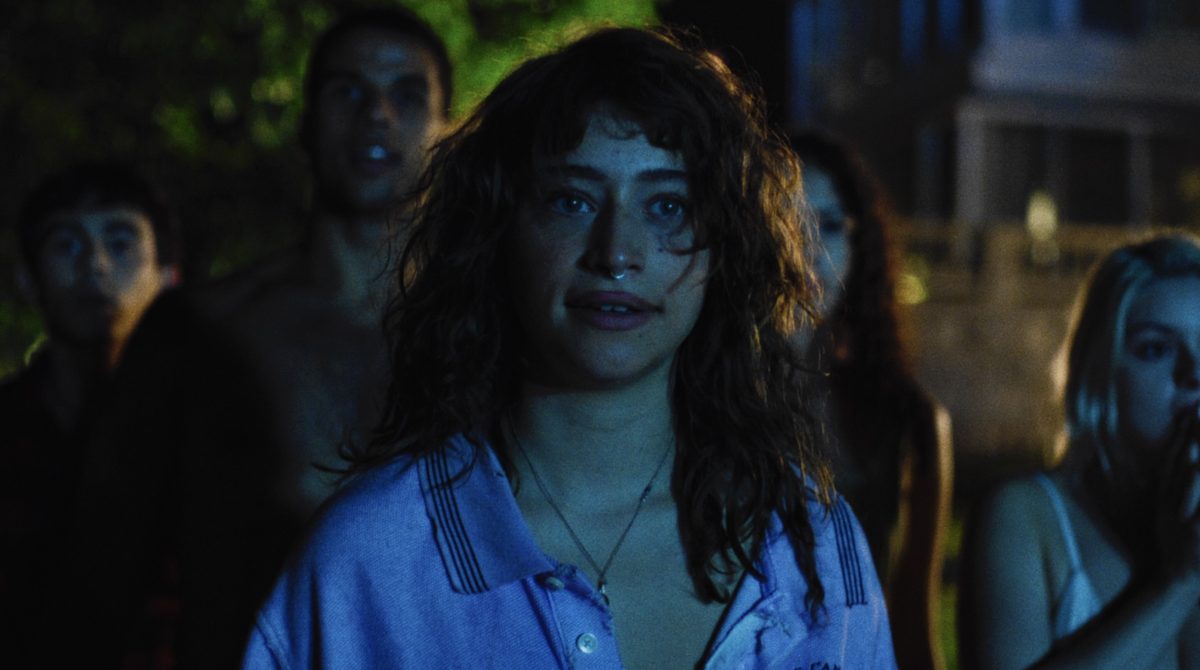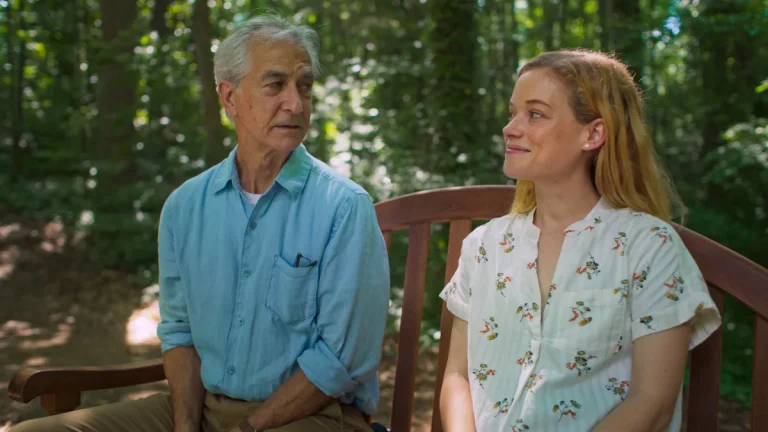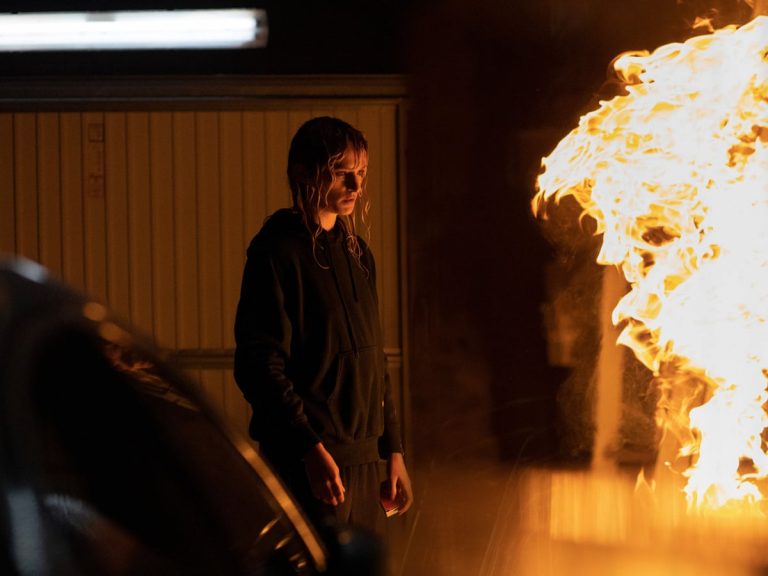Sam Hayes’s “Pools” (2025) offers a messy chapter in the life of a college student who is on the verge of being expelled from her university. The script follows her journey of growth and rediscovery, which happens over the course of a day and a half. It shows her confronting some of her deepest fears, as she learns to be truthful about what she is going through. Yet, despite its inherently contemplative nature, the film is rather lively and refreshing, unlike the dramas that deal with similar themes. So, it feels like a cozy summer film about a group of friends spending time together, frolicking, without a care in the world.
Its sunnier visual tones may remind you of similar comforting projects, whether Richard Linklater’s “Everybody Wants Some!!” or Greg Mottola’s “Adventureland.” The film also lulls you into their relaxing pace, making you reminisce about those bright afternoons in summer breaks when you could just sit around and do nothing besides enjoying each other’s company.
Hayes makes you feel like you’re part of a similar experience, being drenched in sweat, when an occasional breeze can also soothe you and put you to sleep. He captures this feeling remarkably well through his tinted frames, along with characters who are either tired or frustrated by the sweltering heat. The film follows them on a lazy summer day as they all seek a way out.
Kennedy (Odessa A’zion) is at the heart of this story. She is still living in the dorm to finish her course, and so does one of her friends, Blake (Tyler Alvarez). Unlike him, she doesn’t attend her classes without actively worrying about how it would affect her in the long run. He religiously studies to work his way out of the academic mess. Yet, despite their differences, they are both driven by something rooted in their past. If not by that, they are frustrated by the relentless heat, which eats up their will to do almost anything. With no air conditioning, they desperately cling to whatever they can to distract themselves from their stress.
Through their simple actions, dialogues, and gestures, the script highlights how you can’t leave your traumas behind by simply running away from them without addressing how they linger long after. It also applies to their other friends, Reed (Mason Gooding), Delaney (Ariel Winter), and Shane (Francesca Noel), who are on the campus for their own reasons. The film introduces every one of them as their lethargic selves before shifting gears to its adventure. They all try to leave their worries behind by pool-hopping through the luxurious houses in their college town. They seek the thrill of this adventure just as much as the comfort, where they can loosen up and be themselves.

Through this adrenaline-chasing joyride, the film shows them being reckless and candid in ways they couldn’t before. That’s when it begins to address the darker themes of loss, shame, and regret consuming its characters in ways that’s rarely noticeable. It shows them all processing their difficult emotions, reconciling with themselves or each other.
Hayes doesn’t turn it into a self-serious analysis of teenage angst. Instead, he invites you into this reckless part of their world by disarming you through the liveliness of his direction. That’s why it feels far more personal. Hayes basically puts you under the spell of his narrative’s infectious energy to gradually introduce its bleaker undertones through a minimally plotted but potent script.
A’zion is key to holding it all together as Kennedy, the film’s central lead. Her emotionally wounded character buries her frustrations under recklessness or an open disregard for order. The latter is an overarching theme in Hayes’ script as he explores non-conformity in its different forms. He reveals how it can allow people to be more open or vulnerable, since it can make people feel that they are in charge of a given situation instead of something or someone else.
On the flipside, it can simply be a way to not address what should be. It also presents two sides of non-conformity: one where you feel euphoric since it’s your own comforting bubble with no real-life repercussions, while the other is where your choices have consequences.
“Pools” is quietly affecting while dealing with this veiled subtext, yet it falters in finding a tonal balance between its multiple subplots. When the film is not contemplative, it feels like it’s trying to do a little too much through its style. The camera pushes in or out in its frames to invite attention to its dynamic energy, in sync with what the characters feel on the surface.
Yet, it doesn’t fit seamlessly with its quieter moments when it analyzes Kennedy’s arc, tracing her emotional growth. The film also introduces Michael (Michael Vlamis) as a secondary lead of sorts, who is frustrated by his rigid work life. Yet, his arc is sorely underdeveloped for the performance to make any lasting impact.
In the end, “Pools” leaves you with a film heavy on its vibes, backed by A’zion’s stunningly evocative performance, but it feels farther from what it could have been.




![Someone’s Watching Me! [1978]: The Lost John Carpenter Suspense Classic](https://79468c92.delivery.rocketcdn.me/wp-content/uploads/2018/02/Someones-Watching-Me-Screenshot-768x432.jpg)



![The Way Back [2020] Review – An Emotionally Satisfying Personal Redemption Story](https://79468c92.delivery.rocketcdn.me/wp-content/uploads/2020/03/The-Way-Back-2020-768x494.jpg)